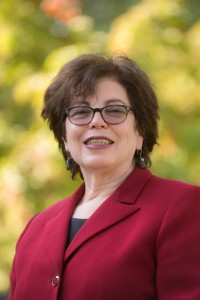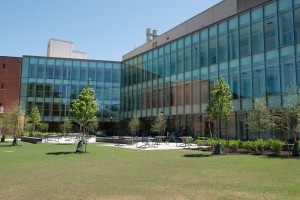WESTFIELD—Westfield State University (WSU) hopes that state funds received recently will lead to a new concentration focused on a burgeoning career field.
WSU received $75,000 from Gov. Baker’s office last week, which will go toward the university’s attempt to create a biotechnology concentration in their biology program. The money is expected to help the university develop the concentration, with a tentative limited offering of it happening as soon as the fall of this year.
“This is a new way for students to move forward and students are really interested in it,” Dr. Marsha Marotta, Interim Vice President of Academic Affairs, said. “It meets the needs of our students, meets the needs of workforce demand and I think it’s really good for the institution because it keeps us on the cutting edge of the programs students and employers are looking for today.”
The money was part of a $39 million capital funding project done by Baker, in conjunction with the Massachusetts Life Science Center. The money was for “funding for research centers and life sciences training facilities at colleges, universities, middle schools and high schools across the Commonwealth,” according to a press release from the Governor’s office.
Other local colleges to receive funding were Smith College in Northampton and Mount Wachusett Community College in Gardner. In addition, high schools in Chicopee, Springfield and Holyoke received grants from the project.
The program will offer a concentration in biotechnology, which means that those who attend for a bachelor’s degree in biology can opt to take additional classes that focus their education on biotechnology. That way, while the person does not graduate with a bachelor’s in biotechnology, they will at least have a more significant background in it, which in turn improves their job prospects in the field.
“Many of our students want to go into the biotechnology field, and with this we would improve their biotechnology skills,” Marotta said.
The concentration would also fit into the “Westfield State Experience,” Marotta said, which combines classroom learning with experiential learning and internships. This, in turn, can help get students ready for the job market or for graduate school, and according to Marotta, helps keep the students more engaged, thus more likely to graduate.
Another benefit, Marotta said, is that this will provide WSU with more connections into the business world, which could benefit the school, students and businesses.
“We kind of think of it as a kind of a win-win-win,” she said.
But what is biotechnology, anyway?
“Biotechnology as a term is pretty broadly used,” Dr. Jennifer Hansleman, chair for the biology department at WSU, said. “Biotech could include pharmaceutical development and the research that goes into that, as well as some cell molecular level positions within laboratories.”
Hansleman added that biotechnology careers are also found in a range of medical professions, including laboratories in hospitals and in businesses focusing on drug development and testing. And this flexibility and wide breadth of scope is part of what’s covered in the curriculum, which also helps them stay relevant to the job market.
“This is part of the faculty paying attention to what our students want and paying attention to what’s going on in the working world and the faculty meeting those needs,” Marotta said.



